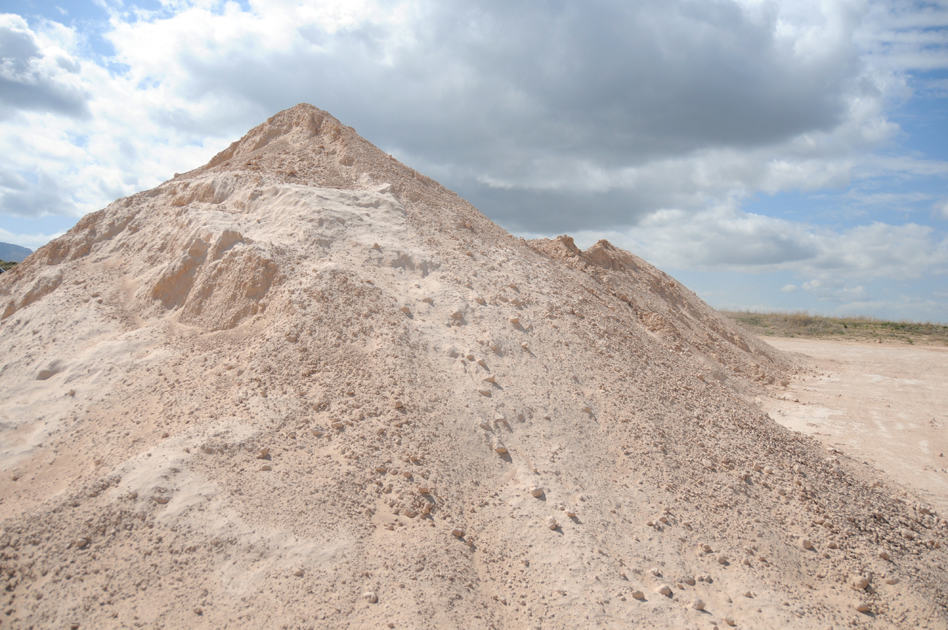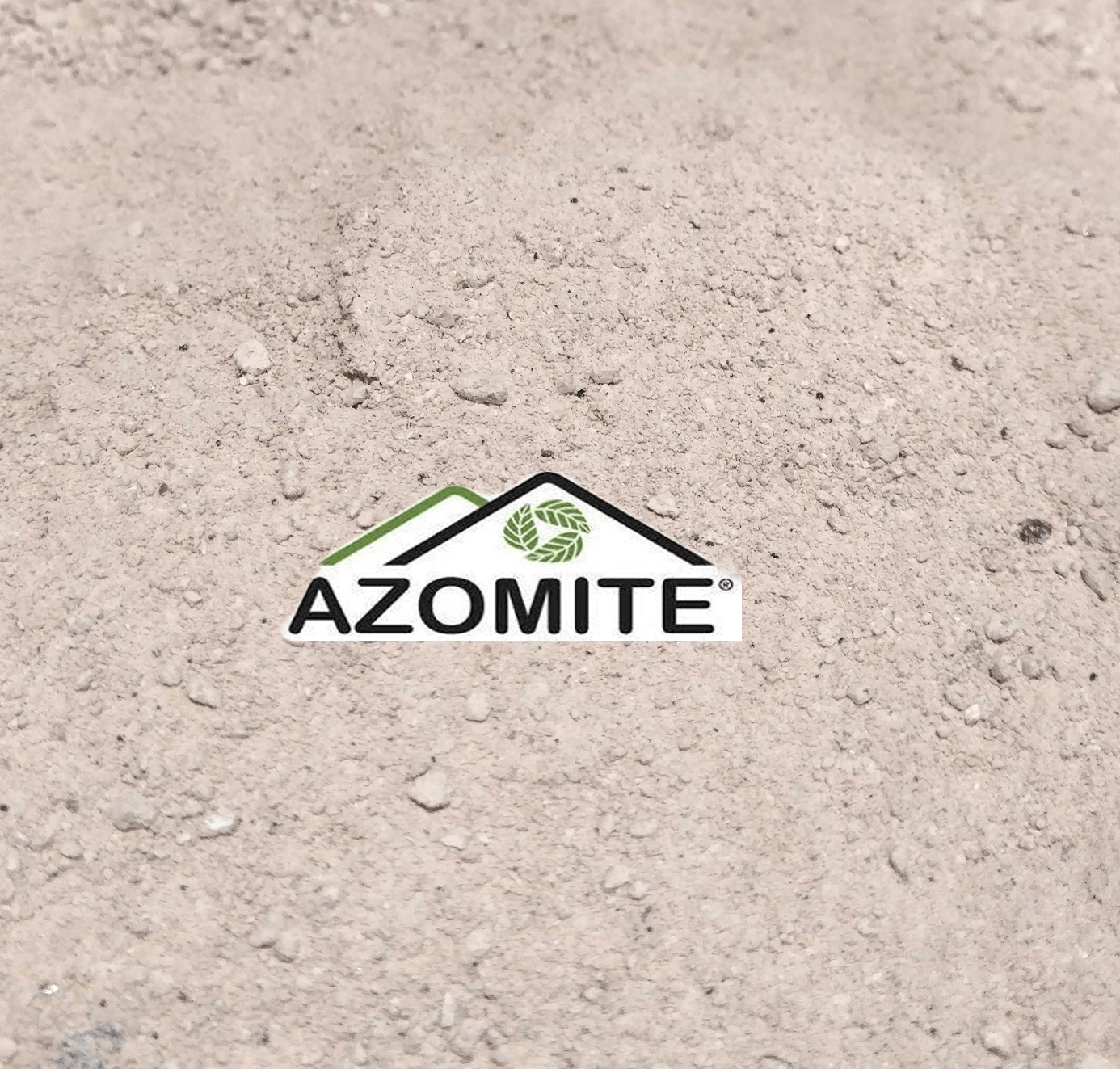Azomite Natural Trace Minerals
A Uniquely Natural Material, Mined in Central Utah, USAAZOMITE SUSTAINED-RELEASE: 30 & 60LBS
AZOMITE® is a highly mineralized complex silica ore (Hydrated Sodium Calcium Aluminosilicate or HSCAS), mined in Utah from an ancient deposit left by an volcanic eruption that filled a small nearby seabed an estimated 30 million years ago. AZOMITE® is used as a naturally rich soil re-mineralizer for plants, as well as a feed ingredient for animals. In a typical chemical assay, AZOMITE® contains more than 70 trace minerals which include many rare earth elements (lanthanides). Many of these elements have been depleted from soils worldwide.
AZOMITE® requires no mixing. It is odorless, will not burn plants and will not restrict aeration or water penetration. AZOMITE® is not manufactured or chemically prepared. It is 100% natural and completely free from additives, synthetics or fillers.
AZOMITE® is mined from an ancient volcanic ash deposit in central Utah, USA. Scientists believe that the unique chemical make-up of AZOMITE® was created when an ancient volcano erupted and the ash settled into a seabed. The combination of seawater, fed by hundreds of rivers rich in minerals, and the rare and abundant minerals present in volcanic ash created the AZOMITE® mineral composition unique to its deposit.
SOIL APPLICATION RATES
Citrus/Fruit/Vines: Apply annually to all trees on ground surface under the drip line at the rate of 1 to 5 pounds, depending on the tree size. (Refer to table above for more guidelines.) Double the application for decline or blight stricken trees. For grapes, apply 1⁄2 lb. to 1 lb. to the soil around each plant and lightly till into soil.
Flowers/Plants/Vegetables: When preparing the soil, use AZOMITE® at the rate of 1 lb. per 10 sq. ft. If in rows, mix into the soil along the rows at rate of 1 lb. per 25 ft. of row. If bed is established, sprinkle around each plant. For houseplants, mix 1 teaspoon per 2-inch pot diameter with potting soil before planting. Give 1 teaspoon quarterly thereafter. For roses, apply 1/2 lb. to 1 lb. to the soil around each plant and lightly till into soil.
Lawn/Turf Care: For existing lawns, a 44 pound bag will cover 12,000 to 15,000 square feet. Apply up to 4 times per year. For new lawns, apply at a heavier rate and till into soil before planting seed or laying sod.
Ornamentals/Shrubs/Trees: Apply annually to all trees on ground surface under the drip line. Recommended application for trees:
- Tree Base Diameter < 10” . Rate: 1 – 5 lbs.
- Tree Base Diameter: 10” – 20” . Rate: 5 – 15 lbs.
- Tree Base Diameter > 20” . Rate: 15 – 40 lbs.
Apply light coating from trunk to drip line. For ornamentals and shrubs, apply 1⁄2 lb. to 1 lb. to the soil around each plant and lightly till into soil.
FEED RATION GUIDELINES
Aquatic/Crustaceans: Generally, the addition of AZOMITE® at 0.5% is suggested. Shrimp and tilapia studies using from 0.3% to 1.0% have all reported significant increase in weight gain.
Beef: We recommend adding AZOMITE® at 1/2% (10 pounds per ton) of the total prepared feed mix. A maximum of 2% (40 pounds per ton) may be added in accordance with good feed manufacturing or feeding practices or offered “free choice”.
Dairy Cows: We recommend adding 2-4 ounces of AZOMITE® to the daily rations of dairy cows.
Horses: We recommend adding 2-4 ounces of AZOMITE® to the daily rations of horses.
Poultry: For poultry on a prepared feed diet, we recommend adding AZOMITE® at 1/2% (10 pounds per ton) of the total feed mix. A maximum of 2% (40 pounds per ton) may be added in accordance with good feed manufacturing or feeding practices.
Sheep: For livestock on a prepared feed diet, we generally recommend adding AZOMITE® at 1/2% (10 pounds per ton) of the total feed mix. A maximum of 2% (40 pounds per ton) may be added in accordance with good feed manufacturing or feeding practices.
Swine: For livestock on a prepared feed diet, we generally recommend adding AZOMITE® at 1/2% (10 pounds per ton) of the total feed mix. A maximum of 2% (40 pounds per ton) may be added in accordance with good feed manufacturing or feeding practices.


